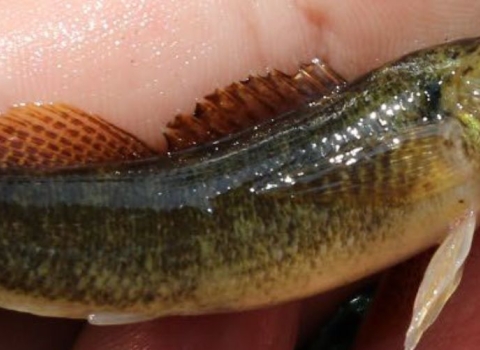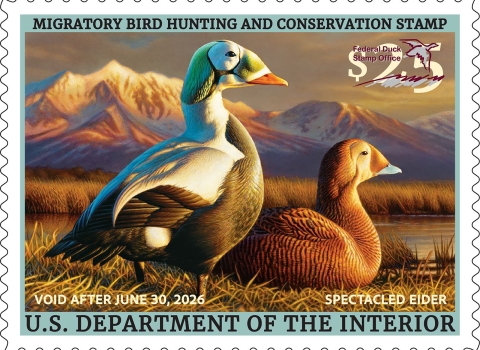HONOLULU — The U.S. Fish and Wildlife Service is proposing critical habitat for ʻiʻiwi (scarlet honeycreeper) on the Hawaiian Islands of Kauaʻi, Maui, and Hawaiʻi. Approximately 223,141 acres of federal, state, and private lands are proposed as critical habitat for ʻiʻiwi , a species listed as threatened under the Endangered Species Act. The designation of critical habitat will help focus federal, state, and local conservation efforts to manage and protect ʻiʻiwi. The Service will hold a virtual public information meeting and hearing on the proposed critical habitat designation.
Mosquito-borne diseases such as avian malaria and avian pox remain the biggest threats to ʻiʻiwi and are primary drivers of declining ‘i‘iwi abundance and distribution over the last century. The effects of climate change climate change
Climate change includes both global warming driven by human-induced emissions of greenhouse gases and the resulting large-scale shifts in weather patterns. Though there have been previous periods of climatic change, since the mid-20th century humans have had an unprecedented impact on Earth's climate system and caused change on a global scale.
Learn more about climate change are warming temperatures in high-elevation forest areas, allowing mosquitoes carrying avian diseases to move into areas that were once considered sanctuaries for these birds. Additional stressors include threats to their native host trees ‘ōhiʻa lehua including dieback, rust, and rapid ‘ōhiʻa death, a fatal fungal disease that has significantly impacted ‘ōhiʻa populations. Drought, fire, volcanic eruptions, nonnative plants, feral ungulates, introduced mammals, competition from nonnative birds, and ectoparasites are additional threats to the species.
“Designating critical habitat is an important step towards saving ʻiʻiwi,” said Lasha-Lynn Salbosa, Pacific Islands Fish and Wildlife Office Section 4 Classification team manager. “Mosquito-borne diseases like avian malaria remain the biggest threat to ʻiʻiwi and other native forest birds. Designation of critical habitat will allow greater access to tools for our federal, state, and other partners to manage and protect these species.”
The ʻiʻiwi is found only on the Hawaiʻi, specifically on the islands of Hawaiʻi, Maui, and Kauaʻi, although small numbers of individuals may still be found on Oʻahu and Molokaʻi. Medium in size, ʻiʻiwi have scarlet feathers, black wings, and a long, curved, bright orange beak. Once found in most elevations of Hawaiʻi, today they are found only in higher elevations, closed canopy forests with native ‘ōhi‘a and koa trees, and they build nests primarily in ‘ōhi‘a where they feed mostly on the nectar of the ‘ōhi‘a blossoms.
The Service will hold one virtual public scoping meeting during the scoping period on: February 10, 2023 from 6:00 p.m. to 8:00 p.m.
- To register for the virtual public scoping meeting, visit our Pacific Islands Fish and Wildlife Office website: https://www.fws.gov/project/iiwi-critical-habitat
This proposed rule will be available for public comment for 60 days. An electronic copy of the document is available at the Federal Register: https://www.federalregister.gov/public-inspection/2022-27544/endangered…
You may submit comments by one of the following methods:
- You may submit written comments through our website:
- https://www.regulations.gov
- Follow the instructions for submitting comments on Docket No. FWS-R1-ES-2022-0144
- You may submit written comments and materials through the mail, postmarked by February 27, 2023:
- Public Comments Processing; Public Comments Processing, Attn: FWS-R1-ES-2022-0144, U.S. Fish and Wildlife Service, MS: PRB/3W, 5275 Leesburg Pike, Falls Church, VA 22041–3803.
- We request that you submit comments only by the methods described above. If your submission is made via a hardcopy that includes personal identifying information, you may request at the top of your document that we withhold this information from public review. However, we cannot guarantee that we will be able to do so. We will post all submissions on http://www.regulations.gov. Comments and materials we receive, as well as supporting documentation we used in preparing this proposed rule, will be available for public inspection on http://www.regulations.gov.
For further information contact: Lasha-Lynn Salbosa, Classification Team Manager, Pacific Islands Fish and Wildlife Office, by email at lasha-lynn_salbosa@fws.gov. To learn more about the proposed critical habitat for ʻiʻiwi, visit https://www.fws.gov/project/iiwi-critical-habitat
To be considered, comments must be received on or before February 27, 2023. All comments and materials received will become part of the public record associated with this action. The USFWS will accept comments received or postmarked on or before February 27.
###
The U.S. Fish and Wildlife Service works with others to conserve, protect, and enhance fish, wildlife, plants, and their habitats for the continuing benefit of the American people. For more information, visit www.fws.gov/pacificislands, or connect with us through any of these social media channels at https://www.facebook.com/PacificIslandsFWS, www.flickr.com/photos/usfwspacific/, https://medium.com/usfwspacificislands or www.twitter.com/USFWSPacific.



